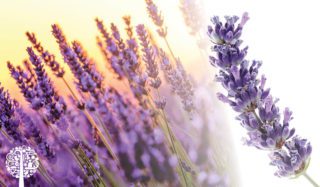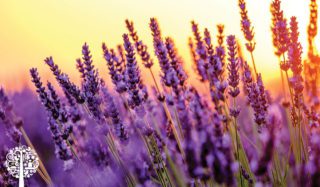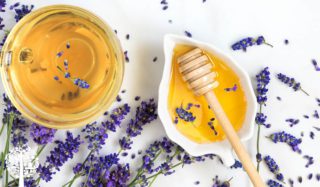Lavender is often associated with scented candles that encourage restful moods and relaxation. But these beautiful purple flowers are good for more than candles! For thousands of years, several different nations have taken advantage of all the benefits lavender offers.
A Little History
Egyptians were the first to cultivate lavender more than two thousand years ago. They incorporated the flower into holy ointments used in embalming and mummification rituals.
Lavender was precious to the Romans, who used it as a cleanser and medicine in thermal baths. It makes sense when you consider the word lavender comes from the Latin lavare, meaning to wash! The Romans believed the plant made them more attractive and used it as an aphrodisiac.
In the middle ages, lavender was a weapon against infectious diseases, as many believed sickness was linked to foul odors. With its strong fragrance, it’s no wonder lavender was considered an essential ally in the Materia medica! And before modern medicine, people used lavender to clean open wounds.
At the beginning of the 20th century, lavender crops grew in France to be distilled and added to various perfumes. Even today, this aromatic herb is highly appreciated in phytotherapy for its many medicinal virtues.
Stress Relief
Lavender’s tiny purple-blue flowers are rich in essential oils, which are highly medicinal. Scientific studies show that lavender may slow activity in the nervous system, so if you’re feeling rattled, this plant is for you! Reap the benefits of the essential oils by making a herbal infusion. Add one teaspoon of dried flowers to a cup of hot water and infuse for ten minutes before sipping your way to a restful sleep.
In addition to making us feel calmer, lavender helps relieve stiff and aching muscles. Soaking in a lavender bath will work wonders on a sore body! Add ¼ cup of dried flower buds into a small cotton bag and drop it into the tub. Incorporating macerated dried flower buds into a good quality vegetable oil is perfect for massages as well.
Lavender’s essential oil is wildly popular in aromatherapy, with some studies showing that inhaling the scent through an air infuser boosts moods and improves the state of mind.
Lavender for Bobos
Lavender is an antiseptic, disinfectant, analgesic, and anti-inflammatory, so it is often used to take the sting away from minor cuts, heal insect bites, and soothe a light sunburn. Make a strong flower bud infusion and let it cool before application. If you use the essential oil instead, be sure to dilute it in vegetable oil, as the essential oil can cause skin irritation.
Pamper Yourself
Lavender has long been included in beauty rituals as it leads to beautiful skin. A decoction of the flower buds, about 50 grams per litre of boiling water, cooled and sprayed on the face hydrates dry and sensitive skin. Lavender can also protect against free radicals, and the above recipe is perfect to use as a base in a green clay mask to help fight acne.
For those suffering from hair loss, a couple of drops of lavender essential oil mixed with one teaspoon of vegetable oil can help with regrowth if rubbed into the scalp regularly.
Sweet Emotions
Scientific and herbal research indicates that lavender can help women suffering from premenstrual syndrome. Lavender herbal tea offers relief from the anxiety, irritability, insomnia, and depression that accompany PMS.

Lavender
Digestion, Nausea, and Tummy Aches
Lavender is a member of the mint family, so it is helpful when it comes to soothing upset stomachs. A warm cup of tea made from flower buds soothes the digestive tract and reduces bloating. It also promotes bile flow, facilitating fat digestion after heavy meals.
A Must-Have In The Garden
Vibrant shades and different tones of purple will bring a beautiful punch of colour to your flower beds and attract pollinators to the garden. As a bonus, some lavender properties will keep pests, moths, and flies away, with scientific studies finding the plant has insecticidal capabilities. The herb’s strong scent also deters deer from the garden.

